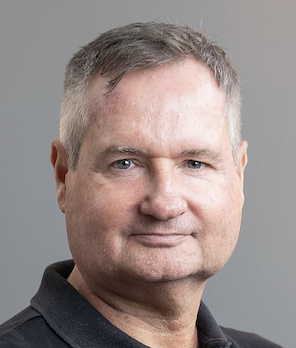
We are using cookies for secure log-in and to improve our app.
First party only, no data krakens 🦑 Learn more in our privacy policy.

.png)
Deriv, one of the world’s largest online brokers, serves over three million users with accessible, intuitive trading every day. As its engineering teams embraced AI-driven development and accelerated product delivery, Deriv recognised the need to modernise its QA processes to keep pace. Deriv deployed Octomind to reduce test maintenance, aid non-technical team members with automation, and build a scalable, resilient QA framework to align with modern development cycles.
As Principal Engineer Mark O'Donnell explains, “Deriv is very focused on democratising trading. The platform has to be intuitive and frictionless, and that means constant iteration and improvement.”
Deriv embraced AI across departments - not only in product features, but in how the company builds and tests its software. Mark, who began his career decades ago with an early fascination in AI, is now at the forefront of integrating AI tools into QA workflows.
Despite its mature engineering practices, Deriv’s QA processes faced growing challenges as the company scaled. Test automation relied on a mix of high-code frameworks and older record-and-replay tools, which struggled to keep up with the rapid pace of UI changes. “Although most of our tools were able to use ‘testing friendly locators’, still too many of our tests were rigid and would break when CSS or IDS would change,” said Mark.
"We investigated some NLP-based tools but they proved too slow or inaccurate.”
Mark O'Donnell, Principal Engineer at Deriv
Meanwhile, the engineering organisation was scaling rapidly with new products being developed and timelines shrinking. Traditional automation methods needed to be scaled in parallel.
As a consequence, Deriv moved entirely away from high-code test automation tools and migrated to modern record and replay platforms that had smart locator backup strategies. Allowing tests to be quickly created by devs and testers. Due to the smart locator technology the generated tests were more robust and could survive minor UI changes.
Deriv’s QA team researched tools that could generate tests from prompts, but most were ineffective and very slow at runtime.
When Mark discovered Octomind, he was initially intrigued by Octomind’s self-discovery feature - the tool’s ability to autonomously explore a test target and generate meaningful test journeys. “I remember watching it navigate a shopping cart site and buy a handbag. It was quite addictive,” he laughed.
But the real value emerged as the team leaned into prompt-based testing, crafting structured, natural-language prompts to express user journeys and validate behaviours. By doing so, it held the promise of making test maintenance easier, and brought test creation closer to the domain logic of the product.
"The prompt-based approach feels like the direction of the future. It offers the flexibility we need and lets us build tests that are resilient to change.”
Mark O'Donnell, Principal Engineer at Deriv
Deriv began introducing Octomind into their “new architecture” initiatives, newer products built with AI-enabled development workflows. These products are evolving rapidly, often daily, and need a test solution that could evolve just as fast.
The team gradually replaced legacy tests with prompt-generated flows, using Octomind’s support for test dependencies to keep things modular. After short training even non-technical team members could create functioning tests. “We encouraged our team to keep prompts simple, break tests into smaller chunks, and use dependencies. Once the steps are generated, they’re robust and dependable,” Mark noted.
As adoption grew, Deriv integrated Octomind directly into their CI pipeline, allowing tests to be automatically executed as part of the release process.

Now equipped with a modernised QA process and Octomind tooling, Deriv has achieved significant improvements in efficiency and scalability. Manual testers are now contributing to test automation without needing to code, while developer participation continues to grow.
Maintenance has seen the biggest improvement. Octomind’s auto-fix feature adapts tests automatically in most cases or regenerates them via updated prompts in seconds and is proving itself very useful.
But the main thing that impresses Mark is the robustness of the generated test code:
“It is what sets Octomind apart from other LLM-based tools. It’s repeatable and reliable, which is extremely important in test automation code.”
Mark O'Donnell, Principal Engineer at Deriv
Deriv is already planning the next phase of its QA transformation, with a focus on integrating MCP (Model Context Protocol), which will allow the team to embed domain-specific knowledge - such as existing test case banks and internal documentation directly into the prompt creation process. This will help generate more precise, context-aware tests that reflect how Deriv’s products actually work in practice.
The goal is to further streamline test creation while expanding the range of team members who can contribute to quality efforts. In the long term, Mark envisions an even broader shift. “I see a future where product specs help define test coverage. Where quality becomes part of everyone’s job within the Software Development Life Cycle. Tools like Octomind make that future realistic.” And for a company committed to democratising trading, democratising QA feels like the natural next step.
“Octomind helps us democratize testing the way Deriv democratizes trading.”
Mark O'Donnell, Principal Engineer at Deriv
Future of testing is QA - automated, AI-powered, and built for speed. Plug Octomind into your pipeline and catch bugs before your users do.